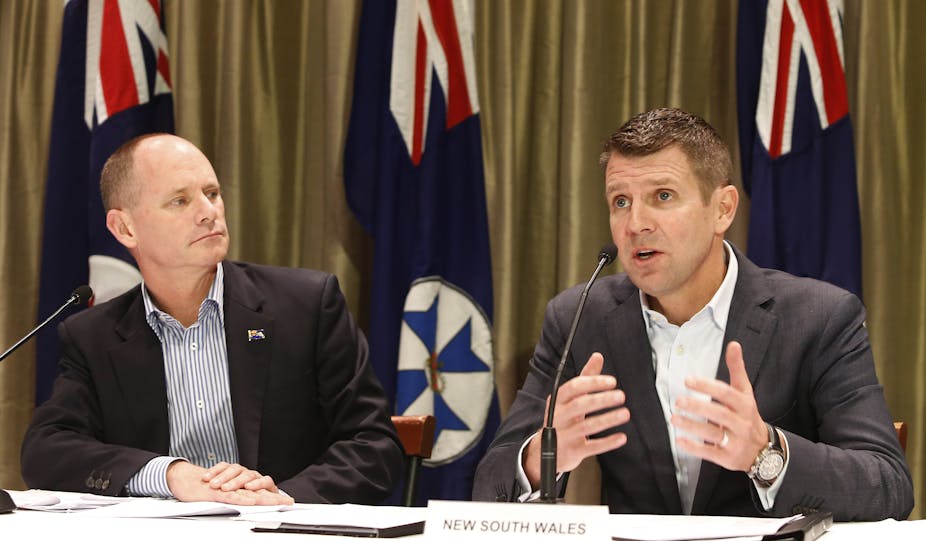This past Tuesday was another bad day for Australian federalism: the Abbott government’s first budget announced the axing of the COAG Reform Council and the withdrawal of a promised A$80 billion from health and education funding to the states.
The Reform Council represented an important and genuinely innovative development in Commonwealth–State relations. It embarked on a process of intergovernmental benchmarking that by its nature takes considerable time to bear fruit.
The funding cuts, meanwhile, illustrate one of the many problems with the very high degree of vertical fiscal imbalance in Australian federalism. The Commonwealth monopolises revenue collection and the states are forever at its mercy.
But every cloud has a silver lining. The Abbott government seems to be inviting the states to make up this revenue shortfall by agreeing to raise the GST, albeit after the next federal election.
The GST is a Commonwealth tax, but it was introduced by the Howard government after the signing of a formal intergovernmental agreement in 1999 allocating its net proceeds to the states.
The terms of that agreement, including the requirement that any changes to the tax enjoy unanimous support from the states, was then written into Commonwealth law. This was not new money for the states, but it was better money because a) it is not subject to the whims of the Commonwealth government, and b) it is not subject to meddlesome terms and conditions in the way other Commonwealth transfers are.
Thus it is clearly in the states’ interest to receive as much of their transfer revenues in the form of the GST as possible. Typically, the ratio is about 50/50 — with the Commonwealth thus left with enormous scope to make its discretionary “tied grants” to the states.
Missing the forest for the trees
The silver cloud in this year’s budget is the opportunity to boost the share of Commonwealth transfers the states get in the form of general revenue funding and reduce the share that comes in the form of tied grants. The states should seize this golden opportunity.
If they can get the GST up to 15%, that would be great; 20% would be even better. The current rate is not particularly high and there’s certainly room to move there. There is also some potential for judicious base-broadening. Working in the states’ favour is the fact that the Commonwealth recognises the GST is an economically efficient tax and Australia needs to reduce its reliance on income taxes.
But seizing this opportunity would require the states to think and act strategically — and doing so has proven something of a challenge for them over the years. Nothing in this respect has been more counterproductive for the states than the ongoing carping about the way the GST revenues are divided up between the jurisdictions.
Australia, originally at Western Australia’s insistence, has a system of fiscal equalisation, whereby the richer states help out the poorer ones to ensure Australians receive comparable quality of public services no matter where they live. Tasmania and South Australia receive a proportionally larger share while, at the other extreme, the mining boom has led to WA receiving a substantially diminished share.
Some of the more selfishly-minded or short-sighted of the donor jurisdictions have been trying to undermine this system. Ideally they would like a simple per capita allocation of the GST revenues so that no equalisation takes place. This will not happen (and may not, later, be in their interest), and the continuing effort to make it happen will only undermine any effort by the states to present a united front, any effort to act strategically.
There are other options for addressing the gross mismatch between revenues and responsibilities in Australian federalism — notably proposals to restore some share of the income tax that the Commonwealth monopolised in 1942. In principle that would be good, and it would put the Australian states on comparable footing to their overseas counterparts.
However, we are talking politics here and in politics it’s what’s possible that counts. If the door to an improved revenue share through the GST is open, the states should get in before it slams shut.

